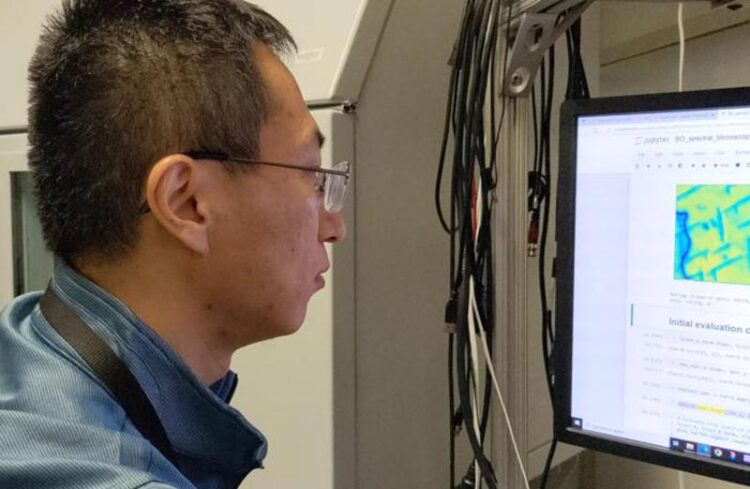Human-AI coworking

Yongtao Liu, R&D associate at ORNL's Center for Nanophase Materials Sciences. Credit: ORNL, U.S. Dept. of Energy
Credit: ORNL, U.S. Dept. of Energy
New system combines human, artificial intelligence to improve experimentation.
Though artificial intelligence decreases human error in experimentation, human experts outperform AI when identifying causation or working with small data sets.
To capitalize on AI and researcher strengths, ORNL scientists, in collaboration with colleagues at National Cheng Kung University, Taiwan, and the University of Tennessee, Knoxville, developed a human-AI collaboration recommender system for improved experimentation performance.
During experiments, the system’s machine learning algorithms, described in npj Computational Materials, display preliminary observations for human review. Researchers vote on data, telling the AI to show similar information or change direction, akin to a streaming service generating suggested content based on users’ activity. After initial guidance, algorithms improve to illuminate relevant data with little human input.
“The foundation of this research is basically not the quantity of the data but the quality of the data that we are aiming for,” ORNL’s Arpan Biswas said.
The experiments and autonomous workflows were supported by the DOE-funded Center for Nanophase Materials Sciences, and algorithm development was supported by the DOE-funded MLExchange project to expand machine learning development at national laboratories.
Media Contact
Kaylee Coffman
DOE/Oak Ridge National Laboratory
coffmanke@ornl.gov
Original Source
All latest news from the category: Information Technology
Here you can find a summary of innovations in the fields of information and data processing and up-to-date developments on IT equipment and hardware.
This area covers topics such as IT services, IT architectures, IT management and telecommunications.
Newest articles

Largest magnetic anisotropy of a molecule measured at BESSY II
At the Berlin synchrotron radiation source BESSY II, the largest magnetic anisotropy of a single molecule ever measured experimentally has been determined. The larger this anisotropy is, the better a…

Breaking boundaries: Researchers isolate quantum coherence in classical light systems
LSU quantum researchers uncover hidden quantum behaviors within classical light, which could make quantum technologies robust. Understanding the boundary between classical and quantum physics has long been a central question…

MRI-first strategy for prostate cancer detection proves to be safe
Active monitoring is a sufficiently safe option when prostate MRI findings are negative. There are several strategies for the early detection of prostate cancer. The first step is often a…



